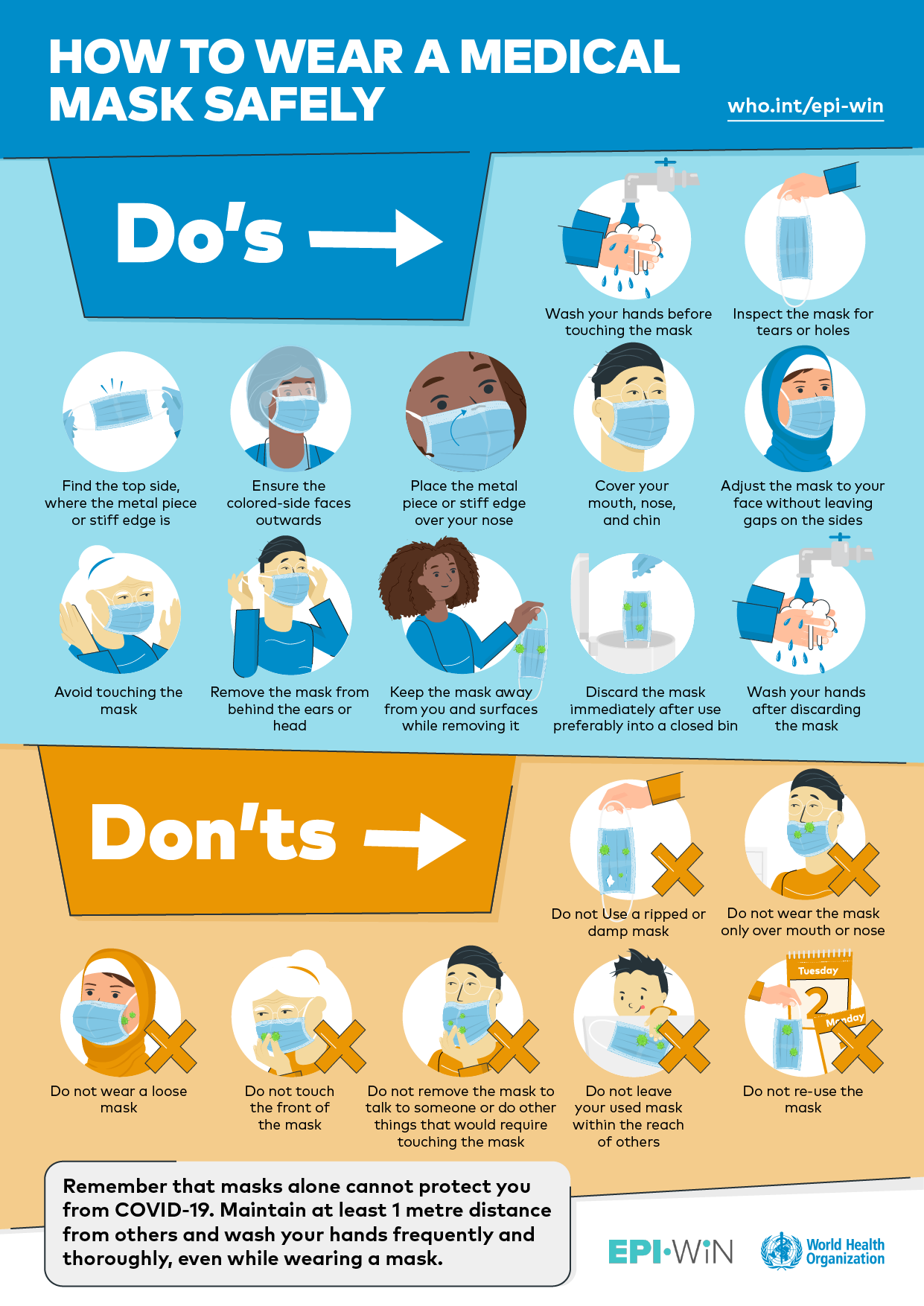Per the order of Public Health Madison & Dane County, people five years of age and older must wear a face covering that covers their nose and mouth when in public, which includes in businesses, health care settings, waiting in line, and on public transportation.
Your mask protects me, my mask protects you.
Wearing a cloth face covering will help protect people around you, including those at higher risk of severe illness from COVID-19 and workers who frequently come into close contact with other people (e.g., in stores and restaurants).
Masks work best when we all wear them.
Masks are most likely to reduce the spread of COVID-19 when they are widely used by people in public settings. The spread of COVID-19 can be reduced when masks are used along with other preventive measures, including physical distancing, frequent handwashing, and cleaning and disinfecting frequently touched surfaces.
Exceptions to the mandate:
Exceptions are made for certain activities such as eating at a restaurant, but during those activities, 6 feet distancing is required at all times. Some people are also exempted if they have a physical, mental, or developmental condition that prevents them from wearing a mask. Federal law requires businesses provide reasonable accommodations to people with disabilities. This may mean providing an alternate form of service (e.g., curbside pickup or delivery instead of in person shopping) to a person with a disability who cannot wear a mask.
Need a Mask?
Dane County Mask Makers is a large group of volunteers who sew and donate high-quality, cotton face masks to anyone in need in our community. Learn how you can get a mask or volunteer to help make them by visiting: danecountymaskmakers.com For more information on using and caring for your mask: publichealthmdc.com/coronavirus/masks
Whether you choose cloth or disposable, it's important to wear your masks safely.
Here's how to from World Health Organization (WHO)...




